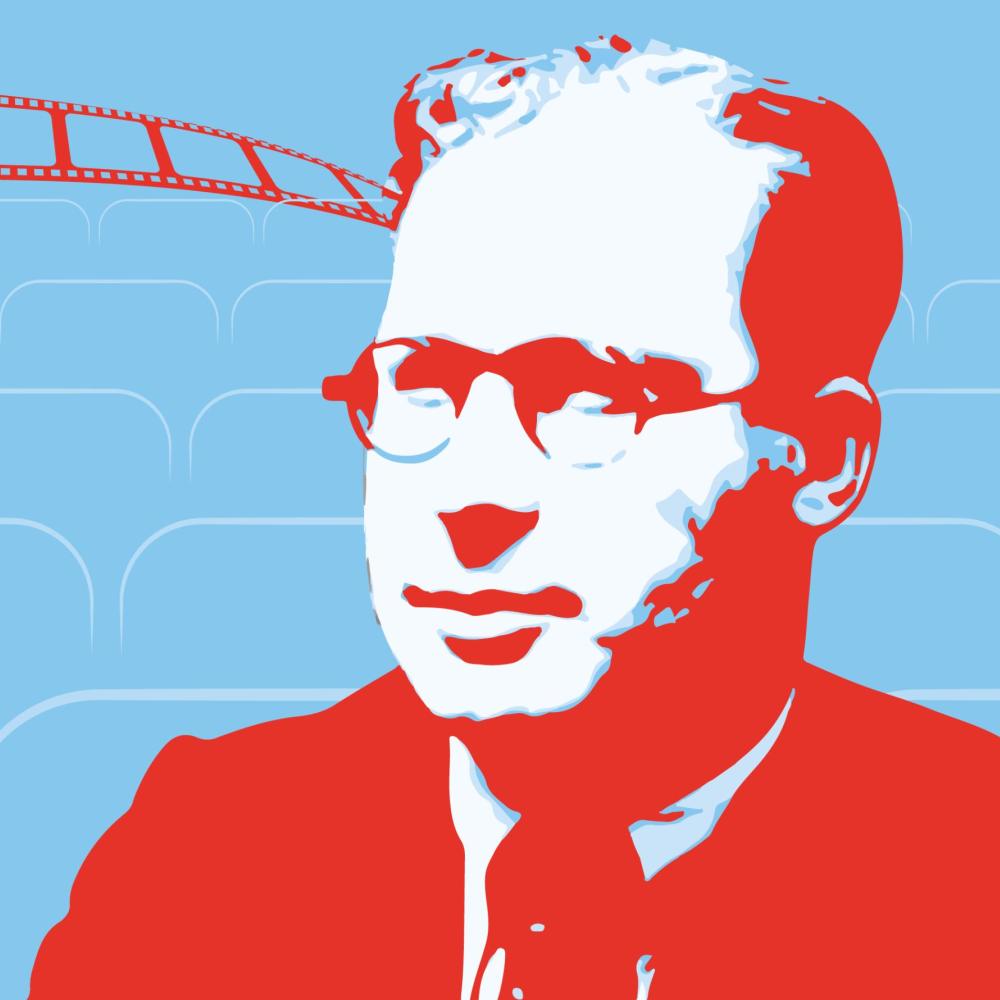

Henri STORCK (°1907 - 1999)
Profession: Cinematographer
Nationality: Belgian
Why an honorary doctorate?
In 1978, Henri Storck receives an honorary doctorate from VUB for his achievements in the film world and his influence on society.
(Sur)realistic vision
Henri Storck is already in his seventies when he receives an honorary doctorate from VUB in 1978. The films of the Ostend filmmaker address themes that present reality in an often raw and (sur)realistic way. He merges political and social awareness with cinematic talent that pulls viewers out from behind their blinkers. VUB looks at Storck's human-centred oeuvre with a sense of recognition and connection. The filmmaker says he deliberately chooses details that move the viewer, that touch the soul to the highest degree. He creates images of authenticity and hope without staging the truth.
They are recognisable, almost spiritually tangible, the themes in the films of Henri Storck. There is no need for fiction; life is an unbridled source of inspiration. His quote, "Reconstruction is something that protagonists will experience as lived and not played", is spot on in this context. Storck refers to the factuality of what he tells cinematically; that it is precisely for this reason that the protagonists of his stories do not experience those stories as roles to be played. They experience them as a reconstruction of life itself.
"Reconstruction is something the protagonist will experience as lived and not played."
About his career
International Conference on Independent Cinema 1930
Henri is one of the filmmakers whose works deal with the sea, wind, and sand. He attracts attention with the quality of his films.
Early 1930s Henri travels through Belgium with a Kinamo camera.
1938. Establishment of the Royal Belgian Film Archive.
1988. Establishment of the Henri Storck Fund.
Documentary film
Henri Storck filmed life in Belgium like no other filmmaker.
Hometown Ostend
In 1930, he becomes the official cinegraphist of Ostend.
The camera rolls
Henri Storck has a happy childhood in his native Ostend. He grows up in close proximity to artists Ensor, Labisse, Permeke, and Spillaert. In 1928, Storck founds a film club in Ostend with some friends and film lovers. He invites the Parisian film maker René Clair and shows 'The General Line' by Russian film director Sergie Eisenstein.
In the early 1930s, the golden age for experimental film in Belgium, he discovers the miracle of the camera. With a mobile device, a Kinamo, he makes poetic and surrealistic short films that end up as classics. Storck becomes the official cinegraphist of Ostend.
He throws himself into making documentaries and they do not go unnoticed, neither in Belgium nor internationally. He experiments in the beginning, looking for pure cinema. Then he focuses on social-progressive themes.
Storck participates in the second International Conference of Independent Cinema in Brussels in 1930 and this proves to be a decisive moment in his career. Between the avant-garde filmmakers, he shows his poetic creations of sea, wind, and sand: the Images of Ostend.
Flanked by internationally renowned Dutch filmmaker Joris Ivens, he makes Misère au Borinage (Misery in the Borinage) in 1933. The film sharply and indignantly portrays the harsh living conditions of the workers during the economic depression of the 1930s. He becomes a myth. The same social theme is the subject of Storck's 'The House of Misery' from 1937.
1938. Together with journalist and film critic André Thirifays and politician Pierre Vermeylen, he breathes life into the Royal Belgian Film Archive. Storck's realistic vision and approach give him a face among the international avant-garde.
Henri Storck produces important anthropological films such as "Peasant Symphony" from '44 and later, in 1972, "Feasts in Belgium”. At the same time, he earns his living by making numerous films commissioned by, among others, the BRT, RTB, and international institutions. He produces extremely high-quality versions such as 'Freemen of the Woods' (by Sielmann and Brandt) in 1958 and 'Jeudi on chantera comme dimanche' (by de Heusch) in 1966.
Storck becomes a true reference when it comes to art films. Especially thanks to those in which he portrays painters Delvaux, Labisse, and Rubens.
During his lifetime, Henri Storck also holds other functions related to film. Among other things, he is for a time honorary president of the Asssociation Belge des Auteurs de Films et de Télévision, co-founds the Brussels Centre de l'Audiovisuel and teaches for a few years at the Institut des Arts de Diffusions.
Storck is unmistakably an internationalist. He is an active member of the Fédération Internationale du Film d'Art and the Association Internationale des Documentalistes.
In 1988, the Fonds Henri Storck is founded to manage his film collection; his archives are housed at the Université Libre de Bruxelles (ULB).
Storck leaves life behind in September 1999, and will forever be known as the grand master of documentary film. In 2007, the book 'Remembering Henri Storck' by film scholars Johan Swinnen and Luc Deneulin is published. Storck's work, life, and philosophy find a literary resting place here. More than twenty film experts pay posthumous tribute to the godfather of Belgian film.
What is an honorary doctorate?
VUB has awarded honorary doctorates every year since 1978 to personalities from the most diverse backgrounds who have made a remarkable contribution to their field and to society. From this solemn moment of recognition, they bear the honorary title of Doctor Honoris Causa of VUB.